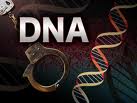There’s a gap between scientist and donors who happen to be the Havasupai Indians in the Grand Canyon over the handling of their DNA samples taken from them some years back where permission was obtained other than finding a solution for type 2 diabetes which the Indians are in high rates.
When they learned years later that their donated DNA samples had been used things they found offensive, they felt betrayed.
The research happens to investigate the genes associated with mental disorder, schizophrenia a condition the tribe considered offensive and has traced their ancestral origins to Asia, contrary to traditional stories that the Havasupai originated in the Grand Canyon.
The incident had sparked a lawsuit over the scope of genetic study that ended in an amicable settlement of $700,000 pay-out to the Indians by the Board of Regents of the Arizona State University.
Some annoying questions have cropped up among the range of research subjects who have learned that their DNA samples is being used in ways they were not consulted about.
Though American courts have ruled out that individuals do not have a property right to their cells once they are taken in the course of medical care but federal guidelines do that people have a right to know how they will be used.
The following concerns have to be addressed by researchers in their genetic study prior to taking the specimens from their research subjects to avoid any backlash by the donor themselves in the future.
*** Do participants need to be told that their privacy cannot be guaranteed?
*** Can wide ranging consent up front be sufficient or is even that misleading because researchers cannot adequately described the scope of studies they have yet to design?
*** Is it alright to use DNA collected for heart research to look for genetic associations with intelligence, mental illness and racial differences?
 First, “We have to communicate a hell of a lot better to the public what is going on when we put their specimen in our bio-bank,” said Stephen O’Brien, a geneticist who run the Laboratory of Genomic Diversity at the National Institute of Health.
First, “We have to communicate a hell of a lot better to the public what is going on when we put their specimen in our bio-bank,” said Stephen O’Brien, a geneticist who run the Laboratory of Genomic Diversity at the National Institute of Health.
It is estimated that more than 90% are willing to allow their specimens to be used in a range of biomedical research as long they are properly informed and consulted.